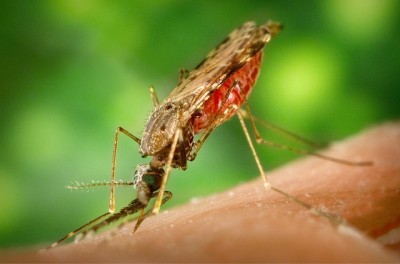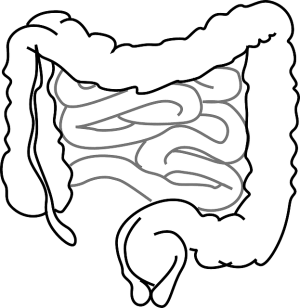Monday 8 th February 2016
 We live in a world dominated by fear. We are constantly worried for money, for our health, for work, for the family… We are also constantly bombarded with news about crimes, terrorism, and all forms of insecurity (social, political, and economic). But every once in a while, we also receive news about epidemics, or about famous individuals who have died of cancer… These news result in a gradual development of fear within us, sometimes even reaching to the point of terror.
We live in a world dominated by fear. We are constantly worried for money, for our health, for work, for the family… We are also constantly bombarded with news about crimes, terrorism, and all forms of insecurity (social, political, and economic). But every once in a while, we also receive news about epidemics, or about famous individuals who have died of cancer… These news result in a gradual development of fear within us, sometimes even reaching to the point of terror. Out of all negative emotions we feel, fear is the most destructive. Fear creates an internal stress response that leads to an inflammation of the body and to an unfavourable epigenetic expression of the genes that are involved in disease.
I will be focusing on just one of the fears we are exposed to nowadays: the fear of disease.
In this article I will discuss what one can do so as to prevent these news and current threats to our health from worrying us excessively.
There is a lot to discuss about this topic - such as the hidden interests behind developing this fear of disease - but I would like to concentrate on how we can make this fear disappear by understanding the origin of diseases and taking responsibility over our own and our family’s health.
Thursday 8 th October 2015
 Both Ulcerative Colitis and Crohn’s disease are types of Inflammatory Bowel Diseases (IBD). Ulcerative colitis is a chronic disease, in which the lining of the colon becomes inflamed and develops tiny open sores, or ulcers, that produce pus and mucous. The combination of inflammation and ulceration can cause abdominal discomfort and frequent emptying of the colon. The symptoms of these two illnesses are quite similar, but the areas affected in the gastrointestinal tract are different.
Both Ulcerative Colitis and Crohn’s disease are types of Inflammatory Bowel Diseases (IBD). Ulcerative colitis is a chronic disease, in which the lining of the colon becomes inflamed and develops tiny open sores, or ulcers, that produce pus and mucous. The combination of inflammation and ulceration can cause abdominal discomfort and frequent emptying of the colon. The symptoms of these two illnesses are quite similar, but the areas affected in the gastrointestinal tract are different.There are different approaches to treating IBD. In this article I will explain the main techniques to heal these diseases from a nutritional perspective: food intolerances, SCD diet and a holistic vegan diet.
Monday 27 th July 2015
 A while ago, a person with celiac disease told me that while he was on holiday in a foreign country, he was forced to eat gluten and apparently it had not affected him. He asked me if he might have overcome his disease.
A while ago, a person with celiac disease told me that while he was on holiday in a foreign country, he was forced to eat gluten and apparently it had not affected him. He asked me if he might have overcome his disease.On another occasion, a celiac child’s mother told me that she was sure that while eating in restaurants during their holidays, her daughter had eaten traces of gluten, probably even in considerable amounts, however, she had suffered no effects. Meanwhile during the school period, any small contamination of gluten seriously affected her health.
In both cases my answer was that all this had happened due to the holiday effect!
Why do intolerances decrease while on holiday? Why several people feel like their disease has healed on holiday?
Thursday 28 th May 2015
 Dental health indicates body health. A proper program of diet, exercise, freedom from stress, and sensible living habits will insure that your teeth will last for a lifetime. Outside of gum disease, the two most common dental problems are caries and malocclusion.
Dental health indicates body health. A proper program of diet, exercise, freedom from stress, and sensible living habits will insure that your teeth will last for a lifetime. Outside of gum disease, the two most common dental problems are caries and malocclusion.Caries are erosions of the teeth, and are usually called “cavities” by the layman. Malocclusion means that the teeth do not fit together properly, such as in “buck teeth” or other deformities of the jaw and mouth.
Both of these conditions will not occur if a person consumes an optimum diet. Not only the diet of the person involved must be superior, but also the diet of the person’s mother as well. Good nutrition for the teeth must begin before birth, and the diet of the pregnant mother will shape the child’s dental health for the rest of his life. To understand the role of nutrition in dental health and well-being, you must be familiar with the chief causes of dental abnormalities and diseases.
Monday 16 th March 2015
 Autism, epilepsy, schizophrenia, depression, obsessive-compulsive disorder, bipolar disorder, Alzheimer's, Parkinson's, attention deficit, hyperactivity, dyslexia, dyspraxia, neuropathies, narcolepsy, etc.; all these conditions which alter the functioning of the central nervous system and the mind may be treated with natural approaches, whereby nutrition and toxicology play a fundamental role.
Autism, epilepsy, schizophrenia, depression, obsessive-compulsive disorder, bipolar disorder, Alzheimer's, Parkinson's, attention deficit, hyperactivity, dyslexia, dyspraxia, neuropathies, narcolepsy, etc.; all these conditions which alter the functioning of the central nervous system and the mind may be treated with natural approaches, whereby nutrition and toxicology play a fundamental role.Neurotoxins, both endogenous (produced by the body itself) and exogenous (stemming from outside the body) are the main responsible substances for the diseases that concern us. Other sources of disturbance of cognitive and mental function are the deficit of nutrients, the disorder of neurotransmitters, the inflammation caused by the immune system and the oxidative stress.
In this article I will expose the main arguments supporting alternative schools that offer solutions to these diseases, as well as the proposal of LivingFullyNourished.

 Gemma Calzada is a Holistic Nutritionist Ph.D. and a certified GAPS practitioner, accredited by ASCA. Her mission is to improve health through nutrition and to help people suffering from a dietary intolerance to live happily.
Gemma Calzada is a Holistic Nutritionist Ph.D. and a certified GAPS practitioner, accredited by ASCA. Her mission is to improve health through nutrition and to help people suffering from a dietary intolerance to live happily. 
